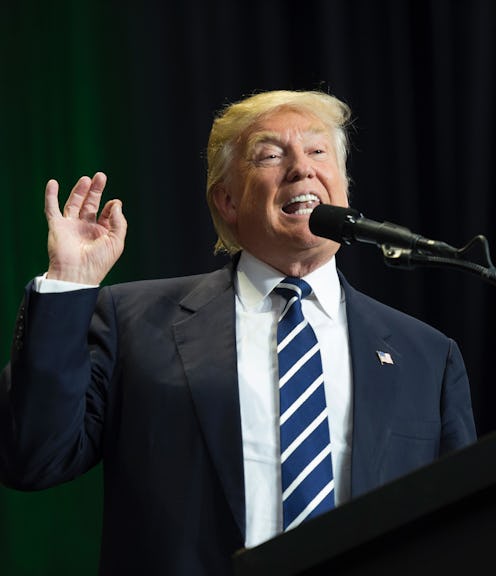News
The Aftermath Of A Policy-Free Election
There are a lot of memories of the 2016 election burned into our minds forever. However, very few involved detailed policy proposals from the president-elect. Donald Trump's campaign strategy was often heavier on insults than policy details. During the election, there were only seven vague policy positions on Trump's website, two of which referred the oft-repeated pledge to build a wall on the United States' southern border.
So with Trump soon holding the power of the executive branch and Republicans holding the power of both houses of the legislative, the GOP is that dog who finally catches the mail truck; the party has all the power to implement policy, but with little clarity on what that policy should actually be. Trump ran not only as a middle finger to the idea of wonky policy papers beloved by the Clinton campaign, but also against the Republican establishment and its policy orthodoxies.
The Republican Congress, after years of campaigning heavily against Obama's signature health care law, is now finding that with a presidency won, in part, on the vow to replace Obamacare with some vague plan described merely as "something terrific," there isn't a ready-made replacement that Republicans are likely to agree on. They've reached the point where their plan at this point seems to be just passing a bill repealing the law far in the future and hoping they can figure out a replacement then, even as the laws uncertain future would potentially cause insurers to pull participation and millions to lose coverage.
This isn't the only issue fraught with disagreement. After Trump spent the primaries calling Mexican immigrants "rapists" and accused them of bringing drugs and crimes into the country while saying he would implement a deportation force for the undocumented, he's finding that many Republicans are not ready to go that far, and are even looking for something similar to the Obama Administration's DACA program they had previously attacked.
Trump spoke vaguely about a large infrastructure bill he wanted to get passed, which he compared to Eisenhower's construction of the Interstate Highway System. Conservative Republicans aren't sure.
On Wall Street deregulation, many in the financial industry are saying that, actually, maybe the Dodd-Frank act passed by Democrats shouldn't be repealed, though they would like some changes. This is different from Trump's pledge during the campaign to come "close to dismantling" it. On U.S. relations with Russia, numerous Republican leaders are finding themselves at odds with the president-elect over the reports of Russia hacking the elections and the nomination of a secretary of state with ties to Vladimir Putin.
Normally, presidential elections are a time for parties to define themselves. The people who try to lead the party put forward a vision of what its policy should be, and the party decides which vision they like. Then, the country decides which party's policies makes sense. Trump didn't do that. He talked about how the country would win under his leadership. And now Republicans are forced to figure out a plan on the fly.
